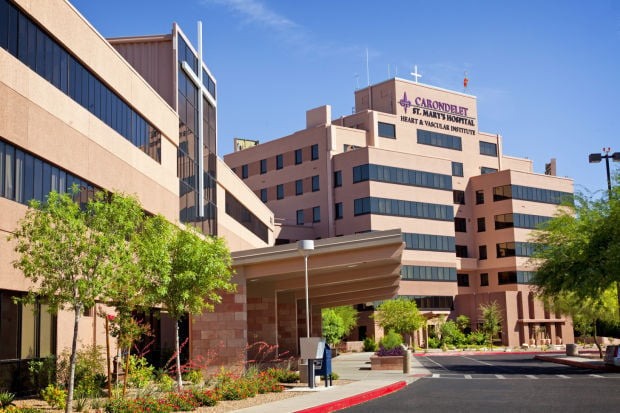It’s not what healthcare.gov was saying this week, but the Carondelet Health Network says it will be an in-network provider on the federal marketplace selling health insurance to Pima County residents.
Open enrollment in the marketplace, created through the Affordable Care Act, began Tuesday and goes through Jan. 31. The marketplace is where working-age people who don’t get health insurance via their employer or through a government program may purchase health plans and qualify for federal subsidies to help pay for them. Many people refer to the insurance available on the marketplace as Obamacare.
When open enrollment began on Nov. 1, the limited offerings for Pima County residents on the marketplace listed both Carondelet and Banner Health as “out-of-network” for all the plans offered.
All the plans being offered this season are HMOs, which means consumers must use in-network providers or face higher out-of-network costs. The exception is if the service is not offered anywhere in network and is necessary. The burden is on the consumer to show that’s true.
While the Carondelet Health Network was listed as “out-of-network” for the three plans named as options for Pima County residents on the marketplace, officials with the Southern Arizona hospital chain say that is about to change.
Blue Cross Blue Shield of Arizona confirmed Thursday that it is partnering with Carondelet on so-called “catastrophic” plans for people under 30, but that the information has not been displaying correctly on the federal website.
The insurance carrier said it has contacted the U.S. Department of Medicare and Medicaid Services about fixing the problem. Catastrophic plans do not qualify for federal subsidies and were purchased by just 1 percent of Americans who bought marketplace plans for 2016, an analysis by the Kaiser Family Foundation shows.
On Friday, Carondelet officials announced they had negotiated a contract with Ambetter, which is the only company offering plans on the marketplace to Pima County residents of all ages. Ambetter is owned by Missouri-based Centene Corp.
“The process of negotiating contracts can be complex but we are pleased to have reached an agreement with Ambetter to provide healthcare services to their members,” Carondelet officials said in a written statement.
That contract means Carondelet will be considered an in-network provider for all the Pima County marketplace plans.
The news of Carondelet’s participation in the marketplace adds provider choice to a narrow Pima County marketplace that has shrunk significantly since 2014, when seven insurers offered more than 100 plans.
The Carondelet Health Network operates two local hospitals: Carondelet St. Joseph’s and Carondelet St. Mary’s.
Banner Health, which also operates two Tucson hospitals, is not an in-network provider for any of the Pima County marketplace plans, officials with the nonprofit Phoenix-based company confirmed.
“Banner didn’t opt out. Banner is not an insurance company and can’t elect to participate on our own, but only through relationships with payers,” Banner Health officials said in an emailed statement. “This year we are not a provider network for any for the remaining plans on the marketplace in Arizona.”
The Affordable Care Act seeks to have as many people insured as possible, which is why there are fines for people who are uninsured — 2.5 percent of one’s income, or $695 per adult and $347.50 per child, to a maximum of $2,085.
However, there are certain scenarios where people can apply for a hardship exemption and avoid penalties for not having coverage.
Most Americans get their health insurance via their employer or a government program, and a minority need to buy it through the individual marketplace, which is sometimes called a health exchange. Some states have set up their own exchanges. Arizona uses the federal exchange.
A federal report released last month said 72 percent of marketplace consumers in states using healthcare.gov will be able to find plans with a premium of less than $75 per month and 77 percent will be able to find plans with premiums below $100, taking into account financial assistance.





